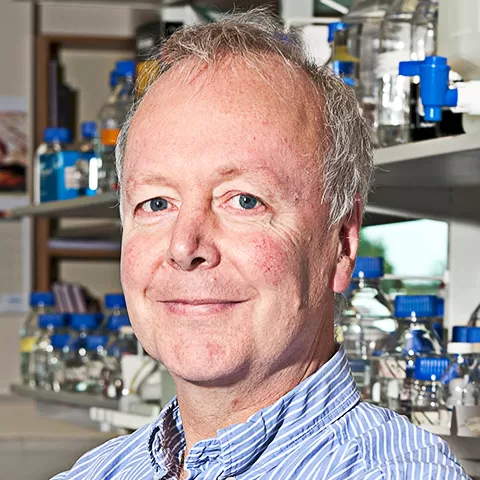Sir Adrian Bird, PhD

Sir Professor Adrian P. Bird, PhD, has been a trustee of RSRT since the inception of the organization. He is the world’s leading expert in the gene MECP2, which causes Rett syndrome when mutated. His lab discovered the MECP2 protein in the early 1990s and currently studies the structure and function of the mammalian genome, and in particular the role of DNA methylation, a fundamental mechanism controlling gene expression.
In February of 2007 Dr. Bird published the landmark paper in Science establishing the principle of reversibility of Rett symptoms in mice, providing the proof-of principle which suggests reversal may be possible in humans.
Dr. Bird became Buchanan Professor of Genetics at the University of Edinburgh in 1990. There he played a prominent role in setting up the Wellcome Trust Centre for Cell Biology, where he was director from 1999 to 2011. Dr. Bird was a Governor of the Wellcome Trust, the world’s largest medical research charity, from 2000 to 2010. In April of 2007 he was appointed deputy chairman and for three years oversaw assets totaling more than $27 billion.
Dr. Bird is also a trustee of Cancer Research UK and the Kirkhouse Trust. He serves on the editorial boards of Molecular and Cellular Biology and Molecular Cell. He is past chairman of the Scientific Advisory Board for the Rett Syndrome Research Foundation, co-founded by RSRT CEO Monica Coenraads in 1999.
Dr. Bird studied at the University of Sussex and the University of Edinburgh. He has received numerous awards and honors, including the prestigious Howard Hughes International Fellowship, the Louis-Jeantet Prize for Medicine, and the Gabor Medal of the Royal Society. He is a fellow of the Royal Societies of London and Edinburgh, and of the Academy of Medical Sciences.
In 2011 Dr. Bird was awarded a Gairdner Foundation prize, one of the most prestigious medical honors in the world, for his discoveries in the field of DNA methylation and its role in gene expression. In 2014 he received the BBVA Foundation Frontiers of Knowledge Prize in Biomedicine. That same year he received a Knighthood for his services to science. He was elected to the National Academy of Sciences in 2016 and received the Shaw Prize that year as well. In 2017 he received the Charles Rudolphe Brupbacher Prize and Buchanan Medal of the Royal Society the following year. ln 2020 he was awarded the Brain Prize.
